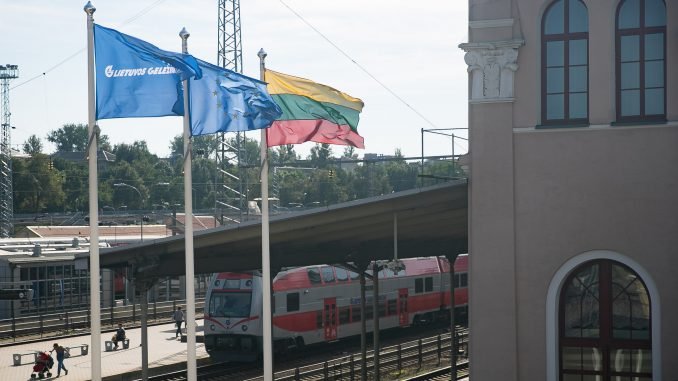
In a comment to BNS, he said Lietuvos Gelezinkeliai’s (Lithuanian Railways, LG) decision to go to court would merely put off the inevitable sanctions.
“The decision of the European Commission to impose penalties on Lietuvos Gelezinkeliai was predicted by many market observers and is not a surprise to anyone. It also seems fully justified because the striping of the railroad tracks from Mazeikiai to the border clearly violated the competition rules of the EU,” said Furman.
“In the present situation, Lietuvos Geležinkeliai can continue to defend their position only by dismissing in time inevitable sanctions for earlier decisions and actions,” said the Rzeczpospolita economic journalist.
Nevertheless, in his opinion, “a dialogue is an amicable solution to problems that have accumulated over the years,” and the agreement reached on tariffs earlier this year shows that a compromise is possible.
“The first good news was the agreement on rail transport charges concluded in the end of June of this year between the Lithuanian Railways and PKN Orlen. This proves that agreement is possible, especially since both parties today are definitely more positive about talks than a few years ago,” said Furman.
In his words, settlement of the latest dispute may give an impetus to the development of railways, highways, gas pipelines and electricity interconnections, as well as PKN Orlen’s investments in Lithuania.
“Reconstruction of dismantled tracks can also facilitate and accelerate the implementation of other flagship projects in the region. (…) It is enough to mention the construction of the rail line called Rail Baltica, which connects Estonia, Latvia, Lithuania and Poland. Other important projects for our region predict construction of fast roads, gas pipelines or power lines,” Furman told BNS.
“Also PKN Orlen may be much more likely to invest in Lithuania after solving all logistics problems. This is important because the Mazeikiai refinery is still considered the weakest link in this holding. Today it earns relatively a lot of money due to its favorable macroeconomic environment but when it gets worse it will be the first in which employment and production will be reduced, and under extremely unfavorable economic conditions may even be closed,” he said.
Last week, the European Commission imposed a 27.87-million-euro fine on Lietuvos Gelezinkeliai for unlawfully limiting competition by dismantling a railway track from Mazeikiai, northern Lithuania, to the Latvian city of Renge in 2008. Brussels agreed with PKN Orlen’s argumentation that this kept the Polish company from transporting freight on Latvian railways.
The decision also paves way for Polish and Latvian companies to file civil claims for compensation of damages. Furthermore, Lithuania was instructed to mend the violation by rebuilding the tracks or restoring the competitive environment in other ways.
Tomas Digaitis, spokesman for Orlen Lietuva, the Lithuanian branch of the Polish concern, told BNS earlier this week that the company so far had no information to comment on.
Lithuania’s officials maintain the tracks were removed for safety reasons only, stressing that the decision did not have a major effect on freight flows.

Be the first to comment